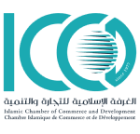ICCIA's Workshop "Challenges that Face Microfinance Institutions"
The Islamic Chamber has the honor to announce the successful conclusion of the activities of the workshop “Challenges that face Microfinance Institutions”, which was held virtually as part of ICCIA workshop series ” Microfinance Directions – Regional and International Experiences”, on Monday, March 28, 2022, sponsored by the Al Baraka Forum for Islamic Economy.
Within the framework of ICCIA’s exerted efforts to enhance the role of microfinance institutions in the OIC countries, the workshop “Challenges that face Microfinance Institutions” was held, in the presence of a selection of leading experts in various fields of economy, with the aim of examining the challenges facing microfinance institutions and discussing ways and mechanisms to address and overcome these challenges. The workshop was moderated by Mr. Ahmed Magdy Khater, Communications Specialist at ICCIA.

In view of the pivotal importance of microfinance in achieving social development, Dr. Yasmine Mahmoud Fouad, Assistant Professor at the Faculty of Economics and Political Science, Cairo University, stressed the importance of the microfinance sector in creating job opportunities for women, and then reducing the gap between women and men in the labor market. She also discussed the role of the Egyptian microfinance sector, noting the measures taken to address the economic repercussions of the Covid-19 pandemic in Egypt.

In the framework of the economic integration pursuit, Dr. Abdulrahman Lahlou, Expert in Participatory Finance and Director of Abwab Consulting Office, addressed the role played by governmental institutions, civil organizations, banks and other financial institutions in achieving this goal. In addition, Dr. Abdulrahman Lahlou referred to the types of funding requests presented in the economic market, explaining the selection criteria on which Islamic banks around the world rely on. He also tackled the remarkable impact of microfinance with a developmental impact.

Mr. Al-Amin Mutallab, Investments Specialist in Funds & Institutions – Economic Empowerment Department – Islamic Development Bank (IsDB), displayed an economic empowerment model that aims at providing economic opportunities to marginalized groups through the provision of financial and non-financial solutions, emphasizing the importance of microfinance institutions in achieving the country’s development. In this regard, Mr. Al-Amin Muttalab provided an illustration of the size and value of the granted loans in the Middle East and North Africa from 2015 to 2021.

The Islamic Chamber’s workshop series, “Microfinance directions – Regional and International Experiences,” is part of ICCIA’s efforts to achieve sustainable social development in OIC Member States, by strengthening the microfinance sector and overcoming the various challenges it faces.
About the Islamic Chamber of Commerce, Industry and Agriculture:
The Islamic Chamber of Commerce, Industry and Agriculture is an international institution of the Organization of Islamic Cooperation, representing the private sector in the countries of the Organization of Islamic Cooperation, A total of fifty-seven countries in addition to the observer members, and other affiliated members of Muslim minorities. The Chamber aims to promote cooperation among its member States in the fields of commerce, industry and information technology, and to promote investment opportunities and joint ventures among member States. Its membership consists of national chambers/ federations / councils of chambers of commerce and industry of the OIC Member States.
The Islamic Chamber of Commerce, Industry and Agriculture was established on the basis of the decision issued by the seventh session of the Council of Foreign Ministers of Islamic Countries, held in May 1976 in Istanbul, Turkey. The idea was adopted by the first conference of chambers of commerce and industry in the Islamic world, which was also held in Istanbul in October 1977 . The constitution of the Chamber was then approved by the Second Conference of Chambers of Commerce and Industry held in December 1978 in Karachi, and its main headquarters is located in Karachi, the economic capital of the Islamic Republic of Pakistan.
For more information about the Islamic Chamber and its upcoming economic projects, you can visit the website https://dev.iccdglobal.com , or contact the media department via the following e-mail: news@iccia.com.





